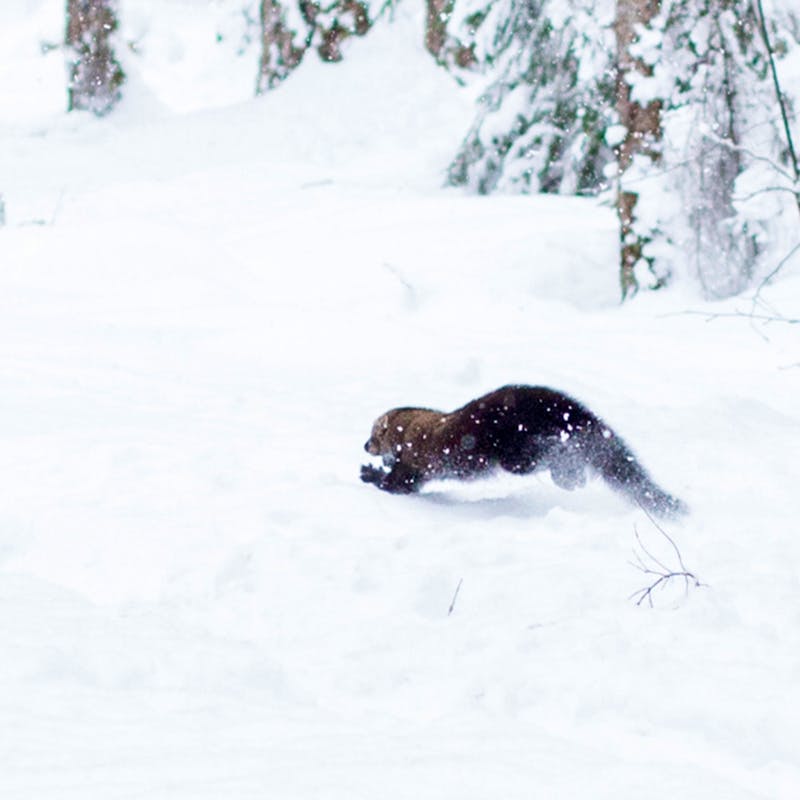Update 4/7/ 2014: Irresponsible Wolf Management in Idaho Prompts Defenders of Wildlife to Request Official Federal Status Review: On Friday, Defenders of Wildlife officially requested the U.S. Fish and Wildlife Service (the Service) initiate an immediate status review of gray wolves in the Northern Rockies as a first step to determine whether the species should be relisted under the Endangered Species Act in the region. Gray wolves were federally delisted in Idaho and Montana in 2011 and Wyoming in 2012, when states committed to manage wolves sustainably and responsibly. Recent management actions in Idaho have prompted Defenders to request a formal review based on the state’s extremely hostile and aggressive management of the species. In response, Defenders of Wildlife President Jamie Rappaport Clark commented: “Idaho said it would manage wolves like other species, but they are blowing it. It’s clear that Idaho has no intention of continuing to help wolves recover in the West. They are trying to rid the state of wolves through any means necessary as quickly as possible.” Stay tuned here for updates in the weeks to come.
More Mexican Gray Wolves Released in the Wild! On Wednesday, the Fish and Wildlife Service released a breeding pair of Mexican gray wolves into the Blue Range Wolf Recovery Area in Arizona, and announced that it will release another pair into the recovery area in the Apache National Forest next week! Both of the females are pregnant, and their mates have been in the wild previously, so they know the ropes. These two females will bring new genes into the population. This is great news and brings hope to the lobo recovery effort. If the pairs are successful, their offspring will bring more wolves to Arizona’s wilds, and will add much-needed genetic variety to the struggling population.
What Does the Science Say: Do Wolves and Cougars Reduce Disease in their Prey? Take a look at a recent article by Todd Wilkinson on the positive effect wolves and cougars have on the overall health of their prey populations. Several scientific studies show that wolves tend to hunt and cull elderly, diseased and injured members of prey populations, thereby contributing to the wildlife population’s overall health. Along with other factors, like climate and landscape condition history, wolves also have an impact on other parts of their environment. For example, wolves have helped reduce elk’s grazing on berry producing shrubs in Yellowstone which has provided additional food for grizzly bears. The bottom line? Wolves are a beneficial part of nature and deserve to be protected.
 OR-7’s Radio Collar Losing Signal: For the past several years, Americans have watched with anticipation as OR-7 has migrated back and forth across the Oregon/California border. In 2011, when he first crossed into California, he became the first confirmed wolf in state since 1924. His movements into California have prompted discussions by scientists and residents about the future of wolves in California since there is extensive wolf habitat in Northern California and the Sierra Nevada. Scientists have been tracking OR-7’s movements for the past four years via a GPS collar, which has long outlived its lifespan. Unfortunately, this week, we learned that the collar could lose signal at any time. Collaring a wolf is time consuming and costly and wildlife biologist prefer to collar wolves that are part of breeding pairs. Since OR-7 is a single male, he will likely not be re-collared at this time. However, if the wandering male finds a mate, wolf biologists could make efforts to re-collar him.
OR-7’s Radio Collar Losing Signal: For the past several years, Americans have watched with anticipation as OR-7 has migrated back and forth across the Oregon/California border. In 2011, when he first crossed into California, he became the first confirmed wolf in state since 1924. His movements into California have prompted discussions by scientists and residents about the future of wolves in California since there is extensive wolf habitat in Northern California and the Sierra Nevada. Scientists have been tracking OR-7’s movements for the past four years via a GPS collar, which has long outlived its lifespan. Unfortunately, this week, we learned that the collar could lose signal at any time. Collaring a wolf is time consuming and costly and wildlife biologist prefer to collar wolves that are part of breeding pairs. Since OR-7 is a single male, he will likely not be re-collared at this time. However, if the wandering male finds a mate, wolf biologists could make efforts to re-collar him.

Nearly 500,000 More Americans Speak Out Against Federal Plan to Strip Wolves of Protections: Last week, we told you that 47,500 Defenders members submitted comments strongly opposing gray wolf delisting after a panel of independent expert scientists unanimously concluded that the US Fish and Wildlife Service (Service) used bad science to justify their proposal. This week, we joined our numbers with others from the environmental coalition to report a whopping 460,000 Americans filed official comments with the Service! These new comments were submitted in addition to the nearly one million comments submitted to the Service in December, 2013 requesting continued protection for gray wolves. These comments represent the highest number of submissions ever to the Service on an endangered species, showing America’s overwhelming support for wolves. In response, Defenders of Wildlife President Jamie Rappaport Clark commented: “Science should be the lynchpin of every species listing decision and science should be the most significant factor guiding decisions on what ‘recovery’ looks like for our nation’s imperiled plants and animals. The Fish and Wildlife Service should withdraw the delisting proposal for wolves and instead put science first to chart a sustainable recovery path for wolves throughout the U.S.”





